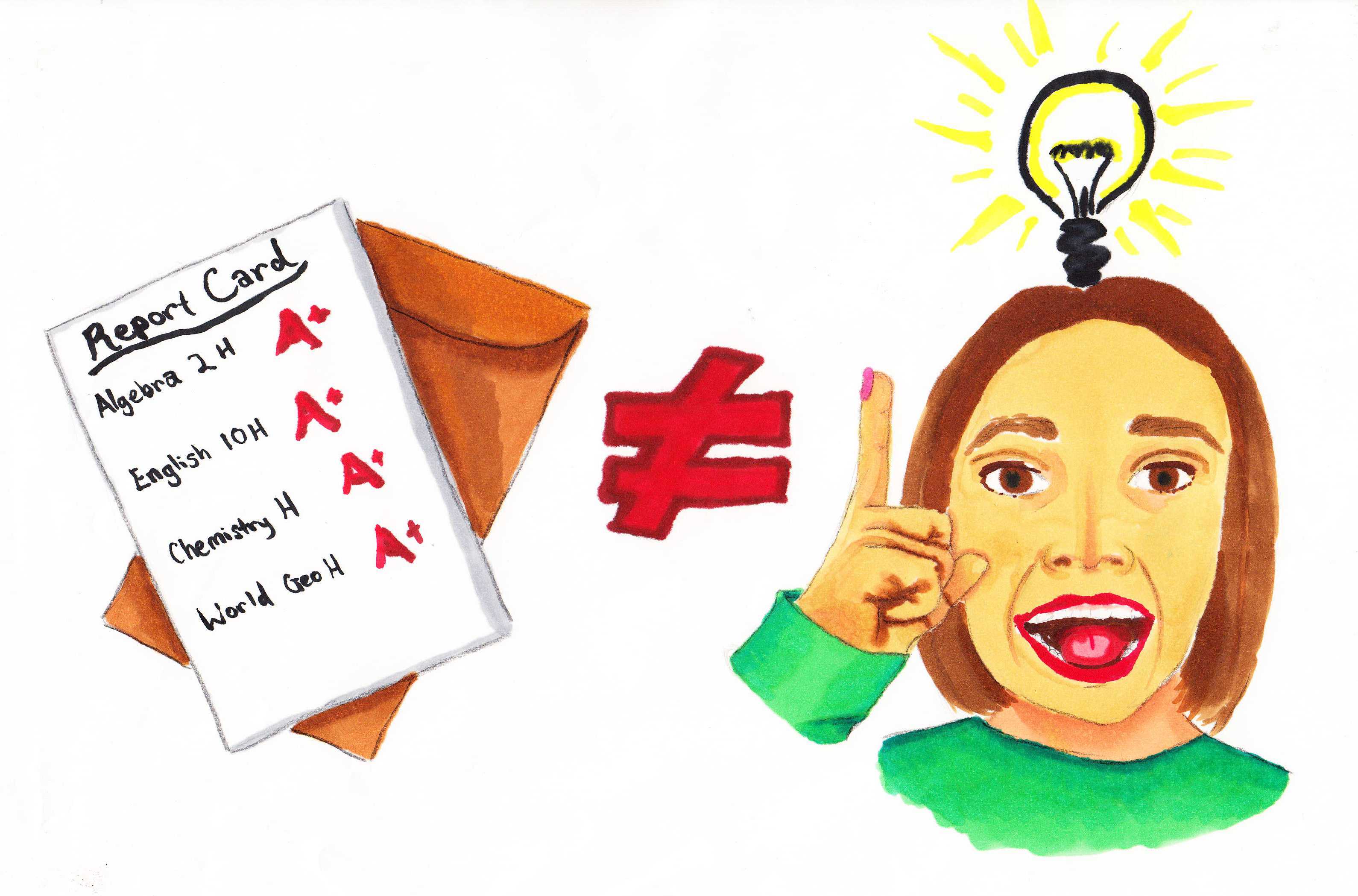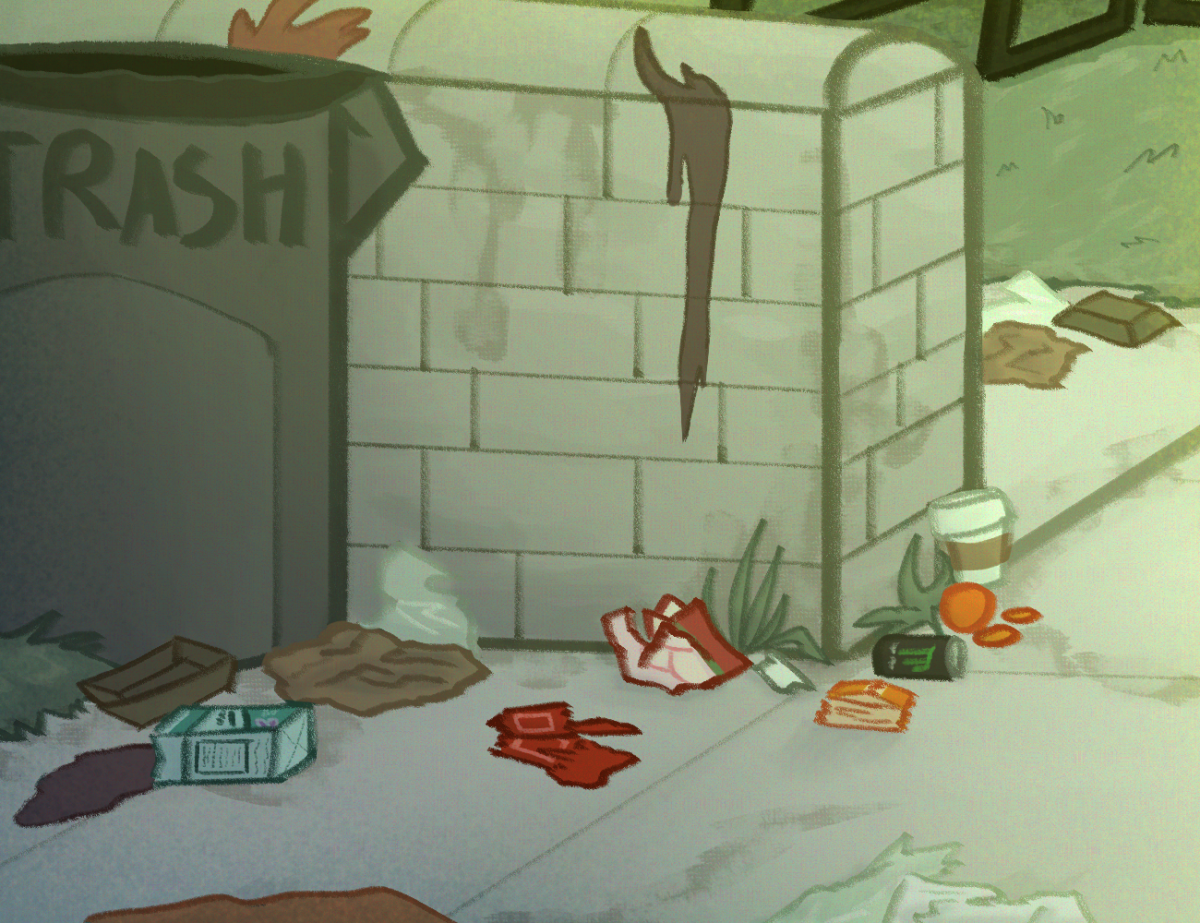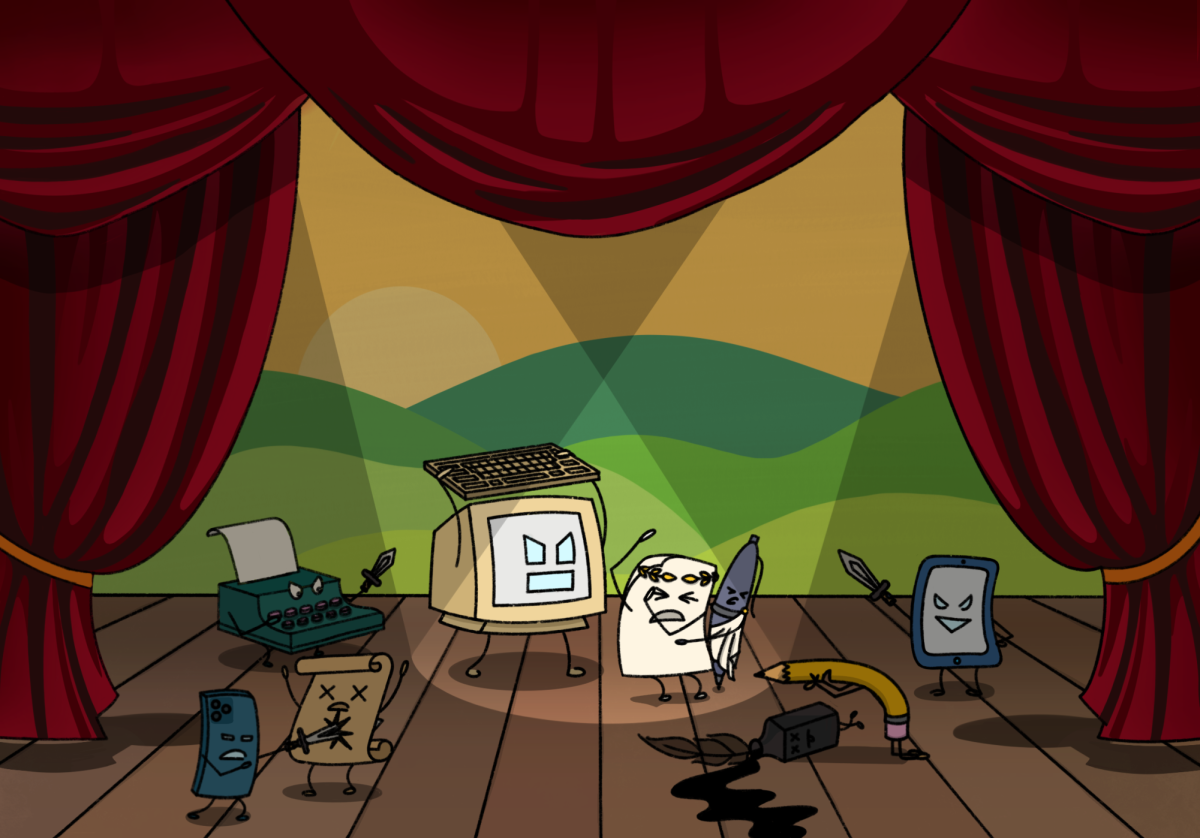Earlier this year, I overheard a conversation between two people who were discussing a quiz they just finished taking. One of them talked about guessing on it and ending up with a D. At the end, they said, “I don’t care though. I still have an A in the class, so it’s okay.”

Earlier this year, I overheard a conversation between two people who were discussing a quiz they just finished taking. One of them talked about guessing on it and ending up with a D. At the end, they said, “I don’t care though. I still have an A in the class, so it’s okay.”
When did this mentality of “it doesn’t matter if I fail this as long as I have an A in the class?” start consuming us? When did we start depending so much on an overall grade in a class? And most importantly, why are we learning for a grade and not for ourselves?
Essentially, it all boils down to a single fact of what defines education these days, and what it means to learn, which is: it’s OK to not understand a certain area in a subject as long as you maintain an A. It might not be what the education system anticipated, but because of the societal pressure on grades and GPA, students rely wholeheartedly on their grades.
This is partially due to our society’s conventional belief on the correlation between education, intelligence and success, as if life were as simple as a chain reaction such as:
Good grades combined with a high GPA equals acceptance to a renowned university, which opens the door to a successful future.
So we learn. But we don’t learn for the sake of ourselves, we learn for the sake of a grade. And this can be a detrimental mindset because we stop learning to understand, and we start learning to pass.
This results in late night cram sessions where we don’t learn any of the material, we just memorize it and spit it out onto a sheet of test paper the next morning, but completely forget it the following week.
We start to take shortcuts such as reading the summary and analysis on Sparknotes for The Great Gatsby, rewriting it in an in-class essay and not developing the skills of analyzing on our own.
We start to copy answers to homework questions off of Yahoo! Answers instead of figuring out the process of figuring out the answer on our own. But it’s okay, because we just need an A for the assignment, and then we can simply cram for the upcoming test.
Subconsciously, we know that these methods are wrong. But we continue on with it anyway, because we want to believe in that chain reaction. We want to believe that the key to success is that easy.
It’s important to realize that a high school GPA may be the result of a chain reaction, but life is not. Life is not linear. There is no pattern to success, and I blame our society for this conjecture, this mentality of learning for the grade and not learning for ourselves.
This is dangerous because if we’re constantly learning and cramming for a grade, what will be the result of our future? What we have “learned” will eventually be applied to our job in some aspect.
If we crammed our way through high school without actually learning, how will we approach our new occupation that doesn’t depend on a grade for our employment, but whether or not we can work properly? What will become of the grade that we so desperately aimed for in high school?
When I ask my dad for help on pre-calculus homework questions, he is able to help me even years after he’s learned it. I asked him how he could remember all that information on limits and derivatives, and he said “because I understood the process.”
He knew how to help me with material that he learned ages ago because he knew why something resulted in a certain answer. That’s why it’s so easy for him. He truly understood it, whereas I relentlessly crammed and memorized.
In the future, when we have a job, there are no Quizlet answers to help us. There isn’t a Sparknotes section that summarizes a company’s financial statements.
Eventually, we will have to start understanding the process and once that light bulb clicks, the problems that we come across won’t be as complicated as they seemed before. However, it won’t happen if we don’t break the habit of learning for the sake of all the wrong reasons.
At this point, you might be asking “Is it really that serious?” and the answer is yes. It is that serious. We’ve forgotten (or at least pushed aside) that grades don’t last forever. School only lasts for about 16 years, assuming you go on to college.
Having an occupation isn’t as easy as getting a grade. We’ll have to learn to be autonomous and apply what we’ve learned in high school in a real life setting. On top of that, most job fields require more than what we are limited to learning in school.
This means there are methods to learn that aren’t taught in schools which are essential to accomplishing the job, making it all the more difficult than simply earning a grade in school.
I am not saying that there has never been a day in my life where I’ve accepted a failed quiz as long as my grade remained an A. But, I’ve recognized that what I’ve been doing for the last few years was wrong and am now trying my hardest to change it.
The first step to changing a bad habit is acknowledging it. It’s crucial for students to acknowledge this flaw in our education system so that we can begin fixing it.














Maizie Anders • Apr 27, 2015 at 11:22 am
This is completley true! I studied really really hard for a test, but I got a C. While I was dissapointed I still know a lot about the subject. My parents tell me its what I know that matters, not the grade! Thanks for bringing this up I think it is VERY important!!!:)
Mrs. Kindred • Apr 22, 2015 at 8:36 pm
Bravo!